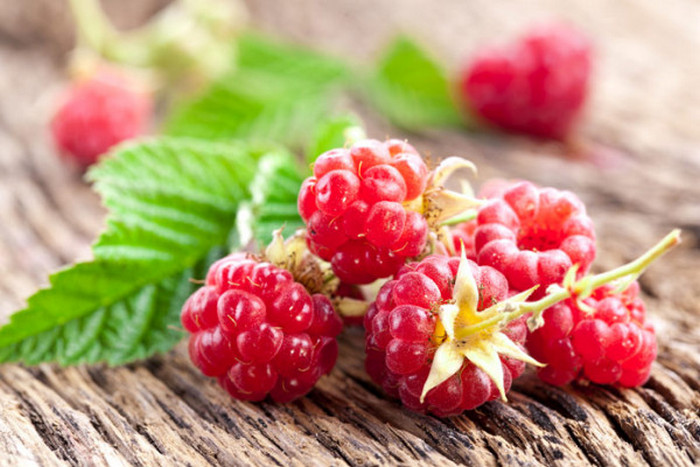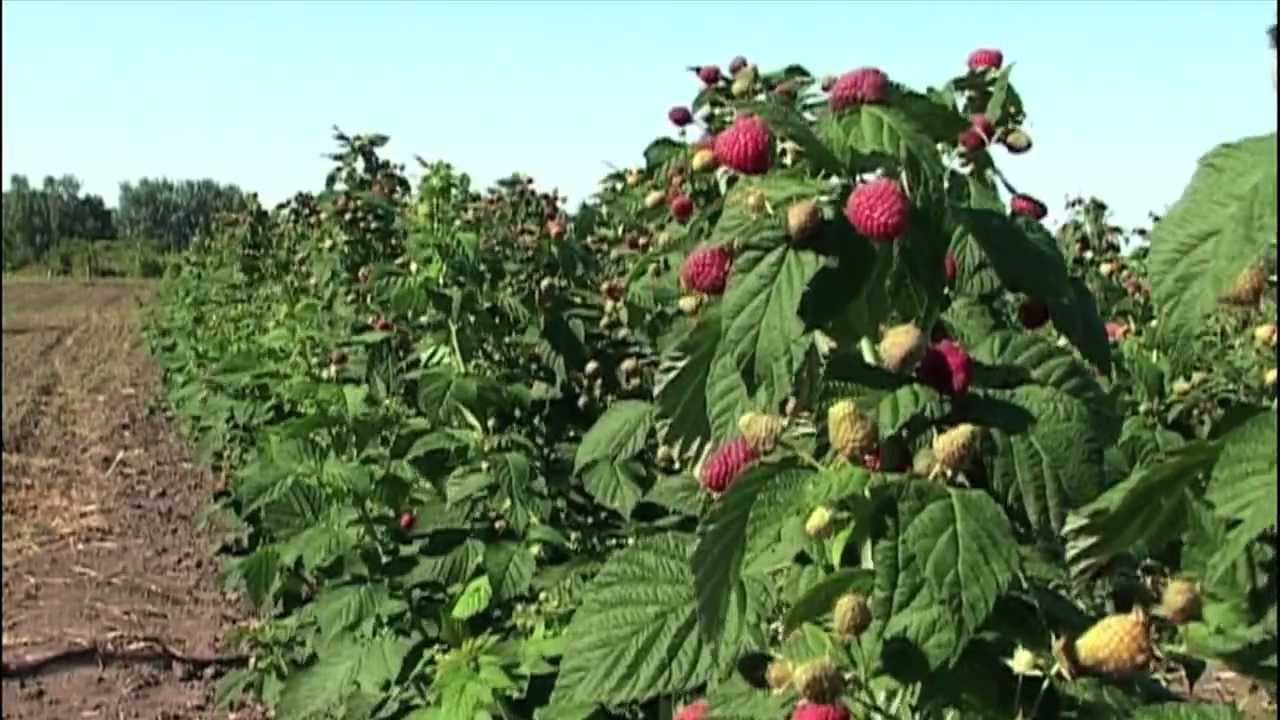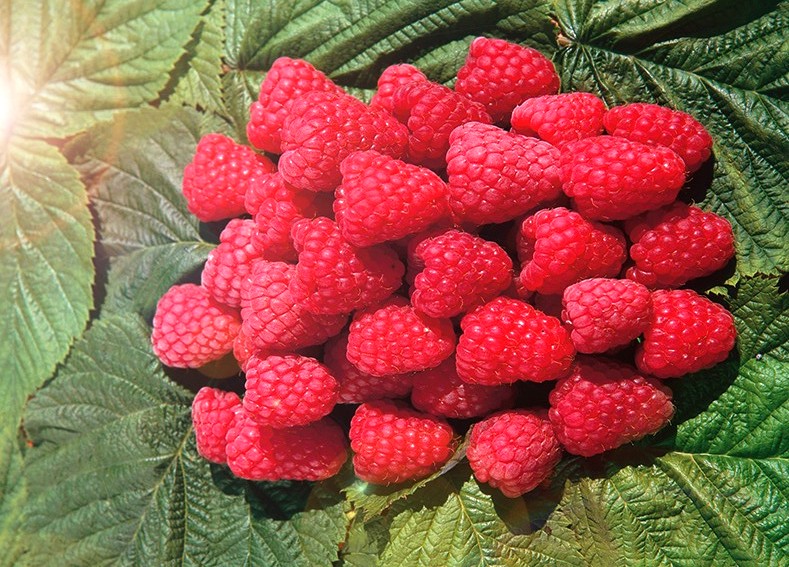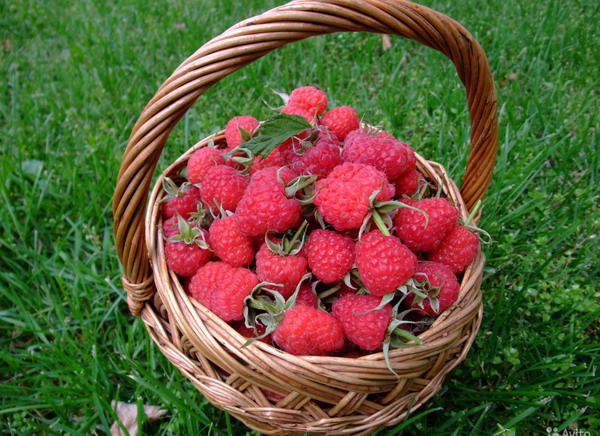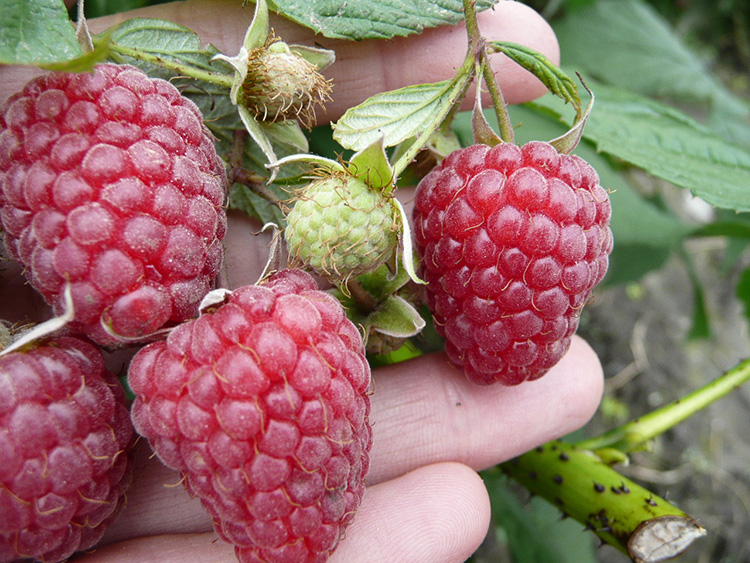Content:
Today there are several varieties of blackberry raspberries. The berries of this culture have a pleasant aroma, rich taste and useful properties. Among such shrubs, Black Jewel raspberry is especially popular. What is the uniqueness of this variety, and how it differs from its counterpart Parple Jewel, we will describe in detail in this article.
Characteristics and description of the variety
Black Jewel is a high-yielding, frost-resistant berry crop that is a mixture of red raspberries and blackberries. The homeland of the shrub is New York. It was there that American breeders decided to get a promising berry crop, which would be endowed with high commercial qualities and a long life cycle. Based on well-known varieties such as Bristol-Dundee and Dundee, the originators coped with the task successfully. The resulting raspberry called Black Jewel not only inherited the properties of its parents, but also a long life span of 10 years.
Black Jewel is a strong growing plant. Its bushes, without cutting, reach about 3 m in height. Moreover, they have an unusual appearance.
General description of raspberries:
- Elongated bush axis. The central stems of the plant are straight, strong. From the second year after planting, many side shoots are formed on them, followed by replacement;
- Shoots. Young branches at the initial stage of growth are rather flexible, light green in color, with white pollination. Upon reaching 2 years of age, the tubes become woody and acquire a strong dark brown bark;
- External organs of the plant. Raspberry foliage is dark green in color, large, ovoid. The upper part of each leaflet is strongly omitted. Their underside is covered with small white hairs. The thorns of the plant are short, sharp, curved towards the bottom;
- System of organs of seed reproduction. Simple inflorescences, collected in a brush, are located on the side branches. As a rule, from 12 to 15 flowers are formed in each inflorescence. Raspberry flowers are white, elliptical, with 5 petals.
The peculiarity of Black Jewel raspberry is that its bushes are quite attractive, lush looking, strewn with a large number of dark berries. Such an appearance of a shrub will be able to transform any summer cottage.
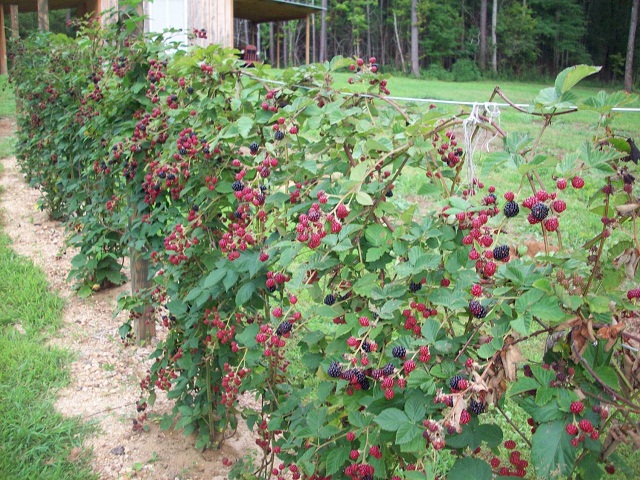
Raspberry in the landscape
Yield
Black raspberry black jewel is a self-pollinating, high-yielding crop. Subject to the rules of cultivation and agricultural technology, one bush brings about 10 kg of high quality berries. Harvesting is usually done in stages. The first ripeness of berries occurs at the beginning of July, the termination of ripening occurs in mid-September.
Raspberry fruit characteristics:
- shape - rounded;
- weight of one berry - 2.5 g.;
- the color of the ripe fruit is purple-black;
- pulp - firm, juicy, tender;
- taste - no sourness, very sweet;
- aroma - rich berry and fruit.
For its purpose, raspberry Black Jewel is a versatile variety. Its berries are well used in making drinks, jams, preserves, cold dishes and baked goods. In addition, they have an incredible number of beneficial properties.
Useful properties of berries
Unlike red raspberries, Black Jewel berries contain essential nutrients that are essential for the human body. The most useful of them are:
- Benzoic acid.This antiseptic and antifungal substance prevents the development of pathogenic microorganisms;
- Potassium, copper and iodine. Thanks to these chemical elements, the human immune system increases, thereby reducing the risk of viral infections;
- Vitamins: B, PP, A, C. This group of low molecular weight organic compounds helps to improve the color of the skin, hair, nails;
- Ellagic acid. This dilactone of hexahydroxydiphenic acid normalizes the circulatory system, improves the functions of the respiratory system and prevents the development of pathogenic neoplasms.
In addition, raspberry berries contain a large amount of vitamin K, which has a hemostatic and wound-healing effect. In addition, it promotes the absorption of calcium.
Note! Calcium is one of the important minerals that the human body needs. It is involved in the breakdown of fats, the normalization of the nervous system and the restoration of muscle mass. In addition, this mineral lowers cholesterol levels, which has a beneficial effect on the walls of blood vessels.
Advantages and disadvantages of the variety
Like any rubus, Black Jewel has its own advantages and disadvantages.
The pluses of the shrub include:
- yield indicators;
- taste and marketability of berries;
- drought resistance;
- healing properties;
- transportability;
- not exactingness to the types of soils;
- decorative look;
- winter hardiness;
- self-pollination.
In addition, this variety has good immunity to pests. Yet it has drawbacks.
Among the disadvantages of culture, gardeners distinguish:
- a large number of sharp thorns;
- instability to powdery mildew.
In addition, the disadvantages of the variety include the high cost of seedlings.
Analogue of Black Jewel variety
To date, there are several varieties of black chokeberry. According to its properties, raspberry Parple Jewel is considered to be closer to the Black Jewel variety. However, there are fundamental differences between these cultures.
Consider the difference between these two plants, which will help you decide on the choice of a variety for your site:
- Unlike its counterpart, Parple Jewel reaches no more than 2 m in height. Moreover, the bushes of this variety do not form shoots;
- The branches of this raspberry are more powerful, smooth, there are no thorns;
- Parple Jewel berries are large enough, their average size varies from 4 to 6 grams. It is worth noting that they have a rare rich purple color, which is so little characteristic of black-fruited crops;
- Subsort Black Jewel is more resistant to pests and diseases. Parple Jewel raspberries are virtually immune to diseases such as scab, powdery mildew and cancer.
Otherwise, these varieties are identical. Both crops have the same fruit properties, commercial qualities, yield and growing rules.
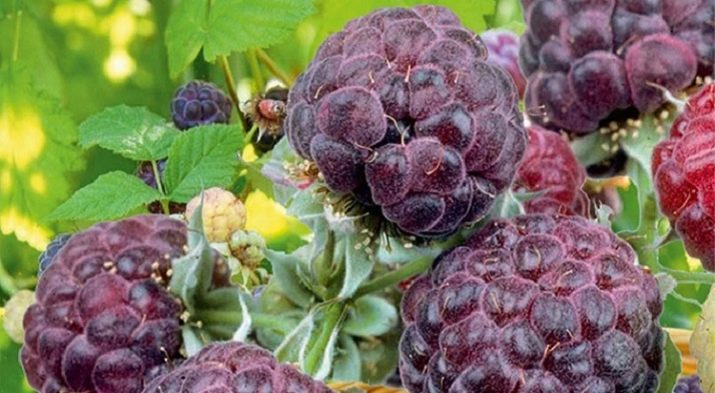
Raspberry Parple Jewel
Features of growing and care
Black raspberry Black Jewel is a rather unpretentious culture. However, the quality and quantity of its harvest directly depends on the rules for planting and further care.
Landing rules
Raspberries Black and Parple Jewel can be planted in both autumn and spring. But still, according to gardeners, it is better to carry out this manipulation in the spring.
Important! Despite the fact that these crops are not picky about the types of soil, their planting should not be carried out in places with a close occurrence of groundwater.
Landing rules:
- The place for growing raspberries should be well dug up and cleared of weed roots;
- At the prepared place, trenches are formed, taking into account 2 m in the aisle;
- Mineral and organic fertilizers are applied and dug into each row;
- Raspberry seedlings are planted in trenches at a distance of 60 cm from each other.
At the end of the planting work, the bushes of plants are first sprinkled with soil, watered, and then mulched with straw.
Agrotechnics
As practice has shown, caring for black raspberries is not as difficult as it might seem at first glance.Agricultural technology does not require specific knowledge or experience.
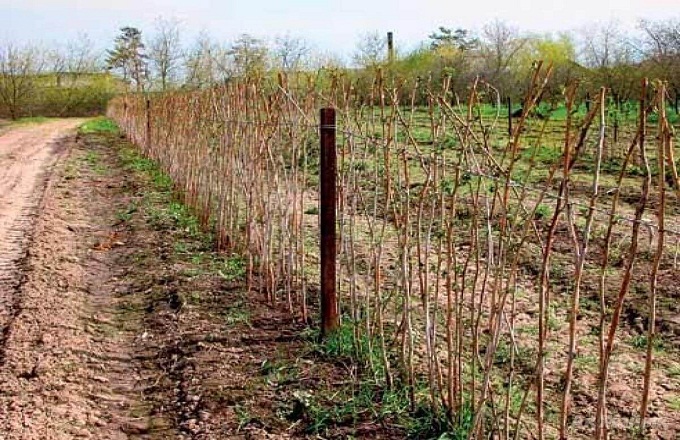
Raspberry on a trellis
For the good development of raspberries and its further fruiting, it will be enough to comply with the following requirements:
- Watering the soil. Black Jewel is a moisture-loving crop, so irrigation of the soil should be carried out as it dries;
- Plant feeding. Raspberries respond well to complex fertilizers. Top dressing is introduced during flowering and after the first harvest in liquid form at the root;
- Raspberry formation. In order for the garden bush to be branched, it is recommended to prune it. The first topping is done when the seedling reaches 60 cm in height. The second is carried out in the spring, after 6 buds are formed on the plant;
- Loosening the soil. In order for the raspberry roots to be saturated with a sufficient amount of oxygen, it is recommended to do a shallow soil treatment once a week;
- Garter stalks. For convenient maintenance and harvesting, plant bushes need to build a trellis;
- Preparing for the winter. Despite the fact that Black Jewel is endowed with high winter hardiness, it can still suffer from severe frosts. In order to avoid this, it is recommended to bend its branches to the ground in the fall;
- Prevention. When growing raspberries of this variety, do not forget about preventive maintenance. By timely spraying the bushes with special preparations, you can prevent the development of pathogenic diseases and reduce the harmful effects of insects.
This culture propagates, like all varieties of black raspberry, without root suckers. An increase in the number of bushes is made only by seed material, by cuttings or by layering.
The varietal type of black Jewel black raspberry is a rather unique culture. This shrub combines taste, useful and commercial qualities, decorative appearance, not whimsical care and high winter hardiness. Such indicators make it possible to grow raspberries, both in small household plots and in large-scale production.
